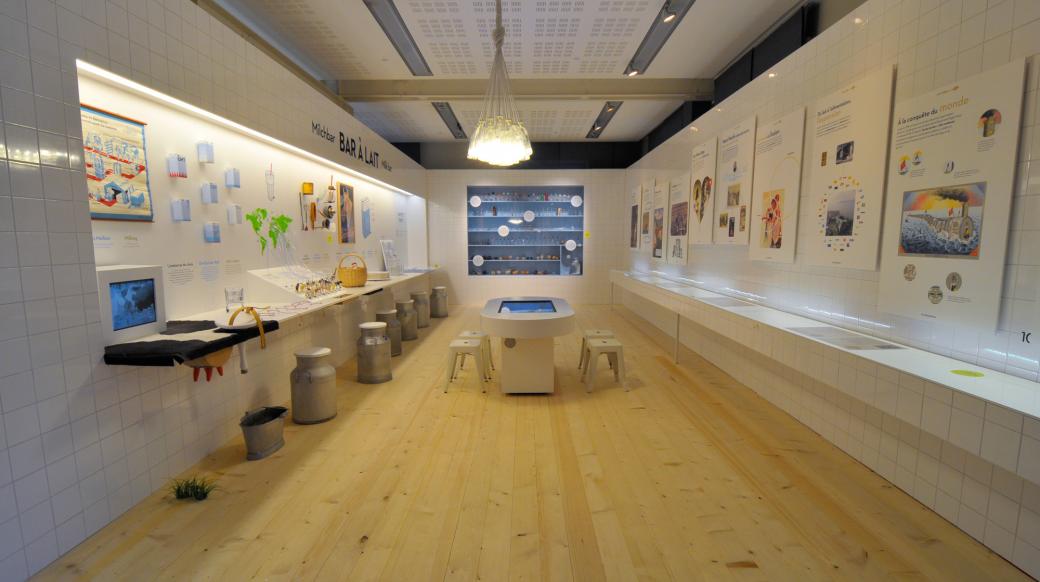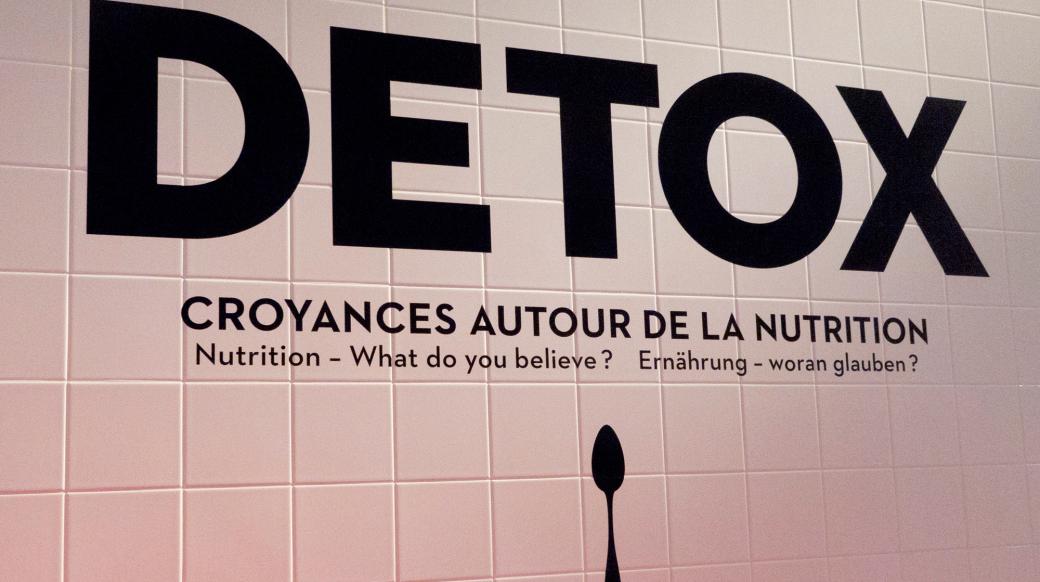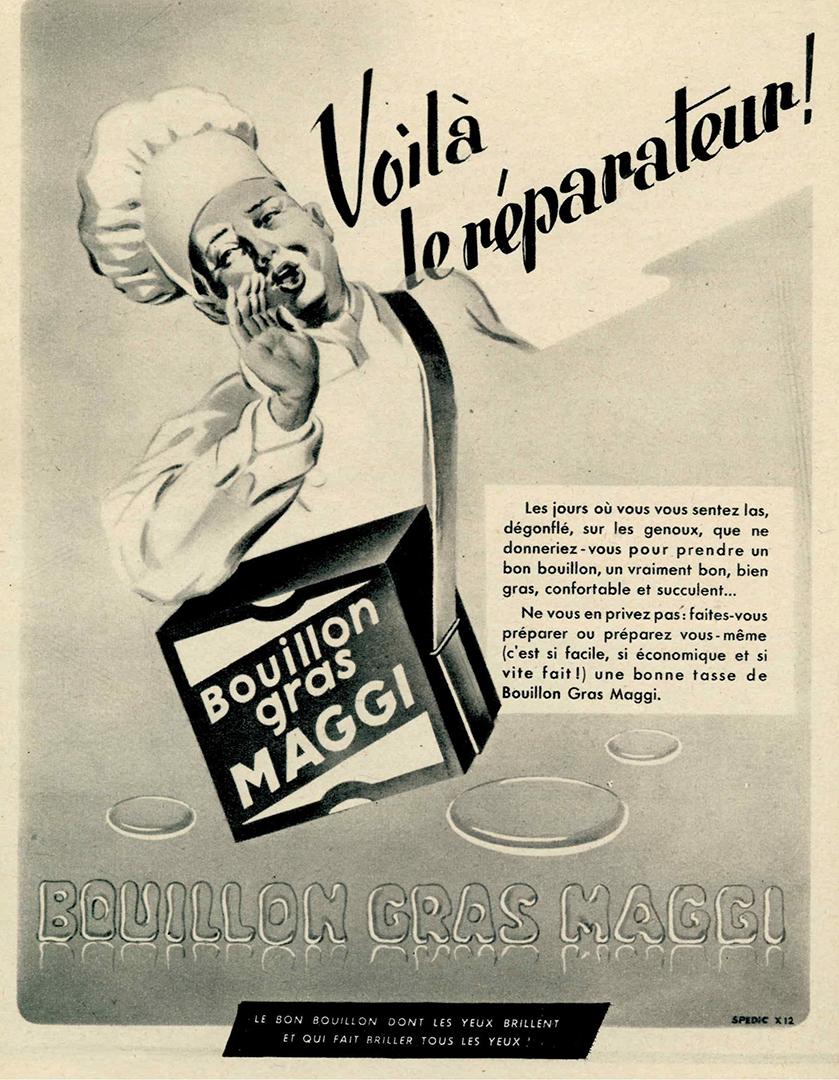DETOX. Nutrition —
What do you believe?
Exhibition at the Alimentarium: 18 May 2014 thru 23 August 2015.
Those who love their food know that the tastiest dishes are often also the ones that contain the most sugar, fat and salt. We 21st-century eaters, inclined to starve ourselves when faced with miracle diets and incessant health tips, are also painfully aware of the damaging effects of this all too tasty trio. Nutritionists, our new food gurus, tell us we must only eat them sparingly. The media constantly warn us about the dangers of excesses: obesity, cardiovascular disease and diabetes are the new ills of a society that may no longer suffer from hunger, but continues to be obsessed by food. And it is ubiquitous: there are television programmes, blogs, food columns, recipe books, cookery workshops – and exotic restaurants are popping up everywhere.
With “DETOX. Nutrition – What do you believe?”, the Food Museum attempts to trace the roots of this schizophrenia that afflicts us in the Western world today: on the one hand, mountains of food to stimulate even the most reasonable of appetites; on the other hand, medical recommendations advocating moderation. And to top it off, the dictates of fashion extol the virtues of being slim, healthy and young. Caught between these aspirations (but eating this or that is such a pleasure!), our good resolutions and the informed advice of one school of thought or another, we no longer know where to turn or what to eat. The purpose of this exhibition is not to force advice down people's throats, but to show how we humans, from ancient times to the present day, have understood and explained the effects of food on the functioning of our bodies and our health.
It is small consolation for us as eaters, reassured by diets with clear-cut rules, that our ancestors’ experience of food was not much freer or closer to nature. Humankind has always wanted to rationalise food and codify its distribution. The various taboos and religious restrictions were compounded by social constraints that were justified by theories claiming that some people’s digestive systems (aristocrats, intellectuals, men) were different from others’ (the poor, manual workers, women). Before the late 19th century, when scientific progress made it possible to show the chemical composition of foods and explain the role of nutrients (proteins, carbohydrates, fats and oils, vitamins, minerals), people could merely extrapolate from empirical observations… and drew conclusions that nowadays strike us as amusing: until the 17th century, fresh fruit was considered toxic due to the likelihood it would rot in the stomach, as it does when left exposed to air. Brandy, on the other hand, which can be ignited and used to preserve, was praised as an almost miraculous medication, to be consumed regularly. Another medicinal food was breast milk, preferably young women’s, which Italian doctor Giovanni Michele Gallo maintained he fed on to prolong his life.
Whereas today people strive to be thin, in centuries past double chins and love handles on women and men were a sign of good health and a favourable social position. They had the means to eat more than needed to sate their hunger, while food shortages and famines regularly left the plates of most others empty. Even at the end of World War Two, it was not rare to see adverts acclaiming the high fat or sugar content of foods and extolling the good health of a more-than-chubby baby.
In short, DETOX examines our relationship with food over the centuries, our beliefs and scientific progress, and playfully demonstrates that what was accepted as an established truth one day can be rejected the next. For example, today, it might seem healthy to drink water, but in the 1950s, women’s magazines advised against drinking more than 800 grams per day for fear of it accumulating in the tissues. And when scientific discoveries – sometimes contradictory and more nuanced than the public would wish – come into the equation, confusion can result. So while health columns may sing the praises of the “antioxidant” properties of broccoli to protect against cancer, this good news is actually only valid for GSTM1 gene carriers… So am I a carrier? And what about you?
Bon appétit and cheers!
DOSSIER Knowledge |
| Persistence pays off | |
| The art of chewing | |
| Milk wars | |
| DETOX. Nutrition — What do you believe? | |
| All dossiers | |



